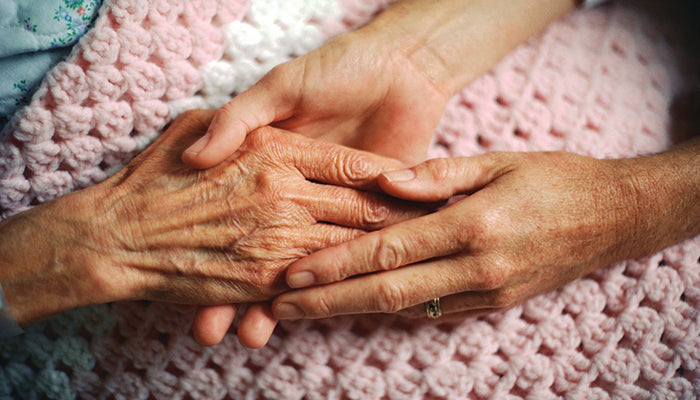
No one wants a loved one to fall and injure a hip, but accidents do happen. In fact, more than 8 million people worldwide suffer from osteoporosis-related fractures each year. And age can play a big part. Adults older than 85 are 15 times more likely to sustain hip fractures than those aged 60-65.
A hip fracture is a serious injury that may require replacement surgery and an extensive recovery time. If you’re caring for a loved one after a hip replacement, here are five tips to help make recovery easier:
1. Learn some new tricks
Before going home from the hospital, health care providers will demonstrate different ways to accomplish everyday tasks without putting extra stress on a new hip. Make sure to be part of these lessons and pay close attention. You can help make sure your loved one doesn’t do too much once home and settled.
2. Get prepared ahead of time
Getting the home ready can be as simple as cleaning up and moving furniture around to make space for using crutches or a walker. It also may include installing grab bars in the shower, adding a lifted seat for the toilet, or removing trip hazards like area rugs. Create a comfortable space such as a favorite recliner where everything needed is within easy reach.
3. Expect some tough workouts
Your loved one is going to need a lot of rehabilitation after a hip replacement. There will likely be exercises and mobility stretches that should be done routinely at home. Make sure they stick to the structured plan and adhere to the rules, especially the limit on lifting heavy objects.
4. Be alert to emotional changes
Recovery from surgery is hard physically and emotionally. There may even be setbacks in recovery that could lead to feelings of depression and isolation. Ask questions each day to get an idea of how your loved one is feeling. If you notice anything unusual or have any concerns, mention them to the doctor or social worker.
5. Don’t expect immediate healing
Everyone heals differently so there is no set schedule for when your loved one will be feeling as good as new. Be encouraging and positive, but don’t push your loved one beyond their personal limit or beyond what is reasonably expected.
With these tips even the most daunting recovery can be eased.
One Call Alert enables independent living at home for seniors and others with 24/7 medical alert monitoring. One Call Alert is simple to use and reliable. Our No-Installation-Needed system delivers emergency care with just one push of a button. Whether you had a minor slip in your kitchen or you are having a medical emergency, One Call Alert will be there for you.
Sources: Centers for Disease Control; Johnell O and Kanis JA (2006) An estimate of the worldwide prevalence and disability associated with osteoporotic fractures. Osteoporos Int 17:1726; Scott JC. Osteoporosis and hip fractures. Rheumatic Diseases Clinics of North America 1990;16(3):717–40.

 1-800-916-0138
1-800-916-0138